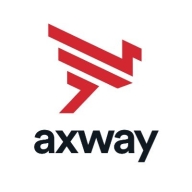

Axway Appcelerator and Ionic are prominent mobile app development platforms in the cross-platform domain. Based on data, Ionic often emerges superior due to its extensive features, whereas Axway Appcelerator stands out in pricing and support.
Features: Axway Appcelerator is recognized for its powerful native capabilities, a robust set of APIs, and excellent performance for native apps. In contrast, Ionic features a comprehensive library of pre-designed components, supports modern web technologies, and allows rapid development for both iOS and Android applications simultaneously.
Room for Improvement: Axway Appcelerator could benefit from easier scalability options, a more intuitive user interface, and enhanced documentation for developers. Ionic may improve by offering more detailed support for novice users, expanding third-party plugin integrations, and optimizing performance for resource-intensive applications.
Ease of Deployment and Customer Service: Axway Appcelerator provides straightforward deployment with a focus on native functionalities, though it has a learning curve, while its customer service is notably responsive. Ionic offers a seamless deployment model leveraging web technologies, with robust community and customer support channels that enhance usability and deployment speed.
Pricing and ROI: Axway Appcelerator is often more affordable upfront, attractive to budget-conscious organizations, but its long-term cost-effectiveness is affected by ongoing native support investments. Ionic's pricing tends to be higher initially, but it offers higher ROI through efficient development timelines and extensive technology adaptability, making its long-term benefits in speed and efficiency justify the costs.

Ionic is an open-source UI toolkit for developing high-quality mobile and desktop apps with web technologies such as HTML, CSS, and JavaScript. Ionic focuses on the frontend UX and UI interaction of an app – UI controls, interactions, gestures, and animations. It is simple to learn and can be used without any frontend framework by utilizing a simple script inclusion.
While previous versions of Ionic were strongly connected to Angular, version 4.x of the framework was re-engineered to serve as an independent Web Component library, with integrations for the newest JavaScript frameworks, such as Angular. Ionic works well in most frontend frameworks, including React and Vue, however some frontend frameworks require a shim to enable full Web Component support.
The official Ionic CLI, or Command Line Interface, is a tool that enables developers to easily construct Ionic apps and offers a number of useful commands. The CLI installs and updates Ionic and also includes a built-in development server, build and debugging tools, and much more. If you are an Appflow member, you may manage your account and carry out cloud builds and deployments via the CLI.
Ionic Features
Ionic has many valuable key features. Some of the most useful ones include:
Ionic Benefits
There are many benefits to implementing Ionic. Some of the biggest advantages the solution offers include:
We monitor all Mobile Development Platforms reviews to prevent fraudulent reviews and keep review quality high. We do not post reviews by company employees or direct competitors. We validate each review for authenticity via cross-reference with LinkedIn, and personal follow-up with the reviewer when necessary.